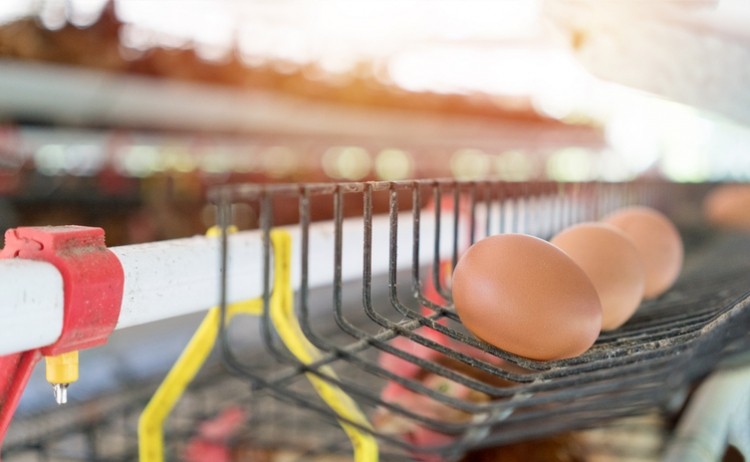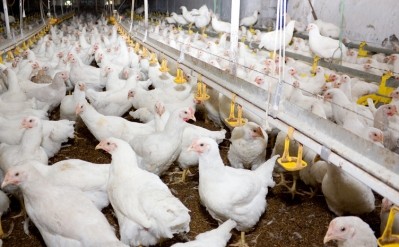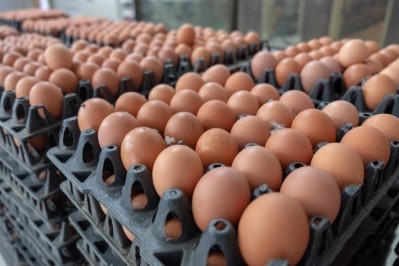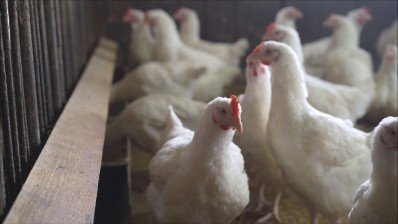Special Edition: Gut health and immunity
Yeast culture can boost intestinal health of aged layers

Yeast culture (YC) is a natural yeast fermentation product that comprises a variety of biologically active substances, including yeast cells, vitamins, peptides, amino acids, proteins, peptides, organic acids, and oligosaccharides noted the Chinese researchers behind the study, which was published in Poultry Science.
The team said that it is known that YC improves the performance of monogastric and ruminant animals (Bontempo et al., 2006, Desnoyers et al., 2009, Özsoy et al., 2018).
However, they said few studies have focused on the effects of YC on the performance of laying hens.
“Previous studies reported that yeast cell wall and yeast autolysate supplied to laying hens increase egg production and egg weight and improve feed efficiency (Yalcin et al., 2010, Hashim et al., 2013). These findings are consistent with our previous large-scale production study with 20,400 laying hens, which showed that dietary YC supplementation increases the performance of aged laying hens (Li et al., 2016).
“Specifically, dietary supplementation of 0.2% YC decreases the feed/egg ratio (1.8%) and mortality rate (20.6%), while increasing eggshell strength (1.2%), egg weight (3.4%), yolk weight (4.0%), albumen height (7.4%), and Haugh unit (4.5%; Li et al., 2016).”
However, the mechanism behind the positive effects of YC on laying hens' performance remains unclear, they said.
Numerous studies have shown that YC affects intestinal mucosal morphology and ileal villus development in broilers (Santin et al., 2001, Zhang et al., 2005), said the team. “These studies evidenced the positive influences of YC on the intestinal health of chickens.”
Intestinal health problems are a major reason for reduced laying performance in aged laying hens, they reported. The researchers hypothesized that YC may augment the performance of aged laying hens because of improved intestinal health.
Intestinal barrier function and digestive capacity play key roles in intestinal health (Katherine et al., 2009), stressed the researchers.
“In general, intestinal permeability–related genes, including tight junction protein, that is, occludin (OCLN), claudin (CLDN), and zonula occludens (ZO; Shin et al., 2018), and antimicrobial peptides, that is, avian β-defensins (AvBD1-14; Lynn et al., 2007) and cathelicidins (CAHT1-3, B1; Achanta et al., 2012), play important roles in the intestinal barrier function. Furthermore, enzymes related to the digestive capacity, including amylase, chymotrypsin, and lipase, play pivotal roles in feed digestion.”
However, it is still unclear whether YC improves the performance of laying hens by regulating these genes, said the Chinese scientists.
They decided to evaluate selected aged laying hens to determine whether dietary YC supplementation could alleviate the reduction in performance and egg quality and boost performance of aged laying hens by regulating these intestinal barrier function and digestive capacity genes.
Methodology
The YC used in the study was produced by fermentation of a substrate that contained corn germ meal, wheat bran, sugar cane molasses, yeast extract, and inorganic salts by S. cerevisiae.
Sixty 67-week-old Hy-Line Brown laying hens were randomly allocated into two experimental groups with five replicates of six birds each. One group was fed a control diet, whereas the other received the control diet supplemented with YC at 3.0g/kg; the experiment lasted for 8 weeks.
Results
The Chinese researchers found that dietary supplementation of 0.3% YC improved the performance of aged laying hens, including reducing the feed/egg ratio and improving total egg weight and egg-laying rate.
“Furthermore, the positive effects of YC on the performance of laying hens were associated with enhanced intestinal digestive enzyme activities and intestinal health. Moreover, the improvement in the intestinal health by dietary YC supplementation was related to the upregulation of intestinal barrier–related genes and antimicrobial peptides genes.”
The results showed that dietary YC supplementation increased the total egg weight (11.2–13.6%) and egg-laying rate (13.0–13.5%) but decreased the feed/egg ratio by 9.3 to 11.0% during weeks 5 to 6 and 7 to 8 compared with the control.
However, egg quality, including eggshell strength, eggshell thickness, egg weight, albumen height, egg yolk color, and Haugh unit, was not affected by YC supplementation., they noted.
Dietary YC supplementation increased chymotrypsin and ɑ-amylase activities by 54.8 to 62.5% in the duodenal chyme and reduced plasma endotoxin by 44.1%.
YC dietary supplementation also upregulated the mRNA levels of intestinal barrier–related genes (occludin and claudin 1) and antimicrobial peptides genes (β-defensin 1 and 7 and cathelicidin 1 and 3) in the duodenum or jejunum compared with the control.
“Overall, these findings provide a potential explanation for the mechanisms that mediate the positive effects of YC on laying hens. Thus, these findings will be beneficial for the nutritional management of aged laying hens.”
Source: Poultry Science
DOI: https://doi.org/10.1016/j.psj.2019.11.017
Title: Yeast culture promotes the production of aged laying hens by improving intestinal digestive enzyme activities and the intestinal health status
Authors: JC. Zhang, P. Chen, C. Zhang, M. Mohamed Khalil, NY. Zhang, DS. Qi, YW Wang, LH. Sun















